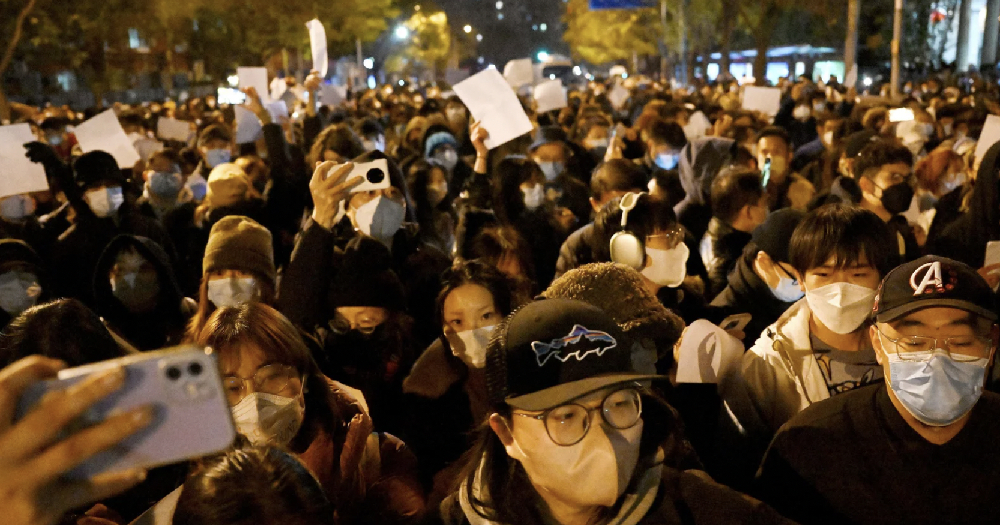Follow us on Telegram for the latest updates: https://t.me/mothershipsg
China President Xi Jinping is reportedly unwilling to accept Western-made vaccines even though China is facing difficulties trying to keep its Covid cases under control, according to Reuters.
Xi's standing might be affected with outbreak of protests
The outbreak of unprecedented protests across the country has raised questions over the government’s zero-Covid policy, and prompted the government to lift Covid restrictions in cities such as Guangzhou, Beijing, and Shenzhen.
While the policy has so far largely shielded the country's 1.4 billion people from the virus, it became increasingly tough to contain the rise of new cases as the Omicron sub-variants, which are highly transmissible, became the dominant strains in the country.
U.S. Director of National Intelligence Avril Haines, speaking on Dec. 3 at a defence forum held in California, said that although the pandemic was taking a toll on China socially and economically, Xi remains "unwilling to take a better vaccine from the West, and is instead relying on a vaccine in China that's just not nearly as effective against Omicron."
She further opined that while such protests may not impact the Chinese Communist Party's position, they could affect Xi’s standing.
This is because the mass protests go to show that the Chinese government is not necessarily better than other countries at its governance and handling of the outbreak, despite the glowing narrative that Xi likes to push.
Still, she cautioned that this does not mean that the country's stability, or the CCP regime is being threatened.
No foreign vaccines
So far, China has not approved the use of any foreign vaccines, opting not to use mRNA vaccines which are developed by Western countries, notably those produced by the American Moderna and the German Pfizer-BioNTech.
Instead, China has relied on domestically produced vaccines Sinovac and Sinopharm, which have different working mechanisms from the mRNA vaccines. Their efficacy has been questioned in the earlier days of the pandemic as well.
An unnamed U.S. official told Reuters that China is not expected to accept foreign vaccines , saying that it's "a matter of national pride", which they would have to swallow "quite a bit" if they choose to accept western-made vaccines.
The White House confirmed on Nov. 28 that China has yet to ask the U.S. for vaccines, according to Reuters.
Many elderly unvaccinated
According to The Guardian, even though 90 per cent of China’s population is vaccinated, only 69 percent of those above 60 years old have had at least three doses.
For those above 80 years old, the figure is only 40 per cent. This disproportionate figure as compared to the vaccination rate among the younger population leaves millions of the elderly vulnerable to greater risks of Covid.
A high vaccination rate among the senior population is regarded by health experts as critical to reopening an economy.
Director of Oregon State University’ centre for global health Chi Chunhuei told The Guardian that China has the ability to carry out advanced medical research and development, but it is puzzling for they have yet to develop a bivalent vaccine to protect against newer variants of the virus.
“Perhaps they were too reliant on zero Covid,” he said.
Related articles
Top image by Noel Celis/AFP via Getty Images
If you like what you read, follow us on Facebook, Instagram, Twitter and Telegram to get the latest updates.
